Beyond Budgeting for High-Net-Worth Families
Why Cash Flow Planning Matters Before Retirement
Whether you're 45 or 65, effective cash flow planning serves as the foundation for every major financial decision you'll make. Unlike traditional budgeting—which typically focuses on limiting expenses—cash flow planning for high-net-worth individuals centers on understanding your complete financial picture to optimize wealth efficiency and create strategic opportunities.
Whether you’re an executive or entrepreneur, cash flow planning enables you to time major decisions like business expansions, real estate investments, or early retirement. It provides clarity on when you can afford to take calculated risks and when you should prioritize liquidity. Most importantly, it ensures you're not leaving money on the table through inefficient tax strategies or missed investment opportunities.
The Modern Cash Flow Framework
Understanding Your Income Complexity
High-net-worth cash flow planning begins with mapping all income sources, which often include:
Portfolio income from diversified investments
- Rental property income
- Business distributions or partnership income
- Deferred compensation and executive benefits
Required minimum distributions (RMDs) from retirement accounts
Each type of retirement income is subject to different regulations and tax implications. For example: Tax-deferred retirement plans generally require you to start taking required minimum distributions (RMDs) by age 73 or 75, depending on your year of birth.
Strategic Outflow Management
Effective cash flow planning requires understanding not just what you spend, but when and why you spend it. We recommend that families start by identifying their big-ticket items: mortgages, income taxes, property taxes, defined charitable giving, etc. Once those have been identified, the next step is to use credit and checking account statements to fill in the rest of the picture.
For many high-net-worth families, spending follows a pattern that differs significantly from traditional retirement models. Many people have ambitious goals for retirement, such as traveling the world or pursuing a hobby or passion. These activities can cause many people to see a spike in their spending after they stop working. In fact, retirees often have a U-shaped spending curve over the course of retirement.
The Estate Planning Connection
One of the most valuable outcomes of thorough cash flow analysis is its impact on estate planning decisions. Through a cash flow analysis, we can help people determine how much of their wealth should be removed from their estate and how much wealth should be retained.
Many wealthy families struggle with this balance. Some are concerned about giving away too much during their lifetimes and may "overpay" from a tax standpoint. Others focus intensely on minimizing their taxable estate but risk "overgiving" to the point of inefficiency.
Remember, the risk to you - as a high-net-worth family - is not that you will run out of money, but that you could be giving to the point of inefficiency.
Practical Implementation Steps
Step 1: Comprehensive Income Mapping
Document all income sources and their timing, tax implications, and growth potential. This includes understanding how market performance affects variable income sources.
Step 2: Strategic Expense Analysis
Rather than focusing on expense reduction, analyze spending patterns for optimization opportunities. Are you maximizing tax-advantaged spending? Are large expenses timed efficiently?
Step 3: Scenario Planning
Model different economic scenarios to understand how your cash flow might change under various market conditions. Risk management is key to holistic planning and wealth management.
Step 4: Regular Review and Adjustment
Cash flow planning isn't a one-time exercise. Regular reviews ensure your strategy adapts to changing circumstances, market conditions, and personal goals.
Take Action on Your Cash Flow Strategy
Effective cash flow planning provides the foundation for confident financial decision-making, whether you're planning for retirement, considering a business transition, or structuring your estate for the next generation. The insights gained from comprehensive cash flow analysis enable you to make strategic decisions with clarity and confidence.
Ready to optimize your cash flow strategy? Contact your Entrust Wealth Partners advisor to schedule a comprehensive cash flow review and discuss adjustments to enhance your financial plan. If you're not yet a client, we invite you to call us at (860) 838-3730 to coordinate an initial consultation and discover how strategic cash flow planning can help you achieve your wealth and legacy goals.

